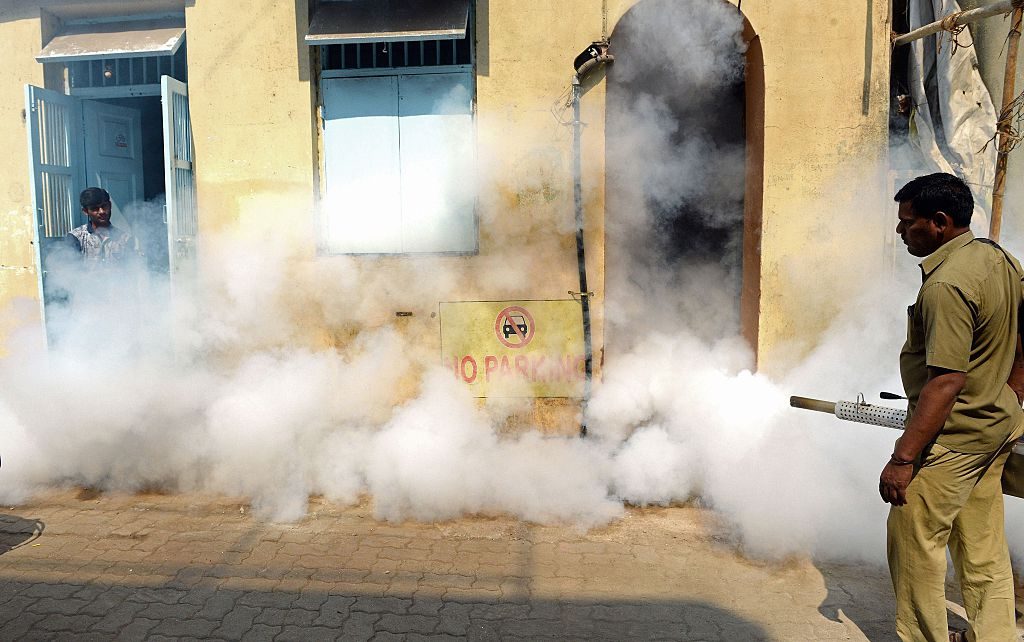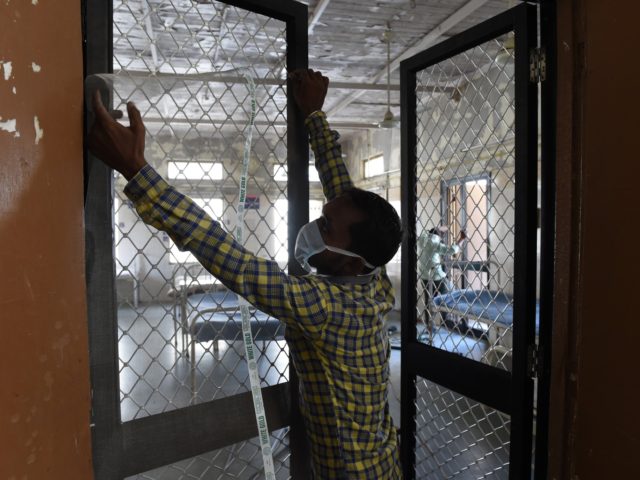Health authorities in northern India’s Kanpur city recorded 98 new cases of Zika on Tuesday as the community continues to battle an outbreak of the mosquito-borne illness that sparked in October, India’s Mint newspaper reported.
“The city has reported a total of 98 Zika virus cases,” Dr. Nepal Singh, Kanpur’s chief medical officer, told Asian News International (ANI) on November 9.
“There has been a surge in cases of the Zika virus and the health department has formed several teams to contain the spread,” Singh told Reuters on November 8.
“There is one woman who is pregnant and we are paying special attention towards her,” he added.
The Zika virus typically causes mild to moderate symptoms in most adult patients. In unborn children, however, the virus can cause significant developmental defects, most commonly microcephaly, a condition in which the child’s head is too small and the brain does not grow to the size necessary for normal functioning.
Kanpur is located in Uttar Pradesh, which is India’s most populous state. Uttar Pradesh has a population of about 241 million, while Kanpur is home to nearly 3.2 million people.
Kanpur’s municipal health department detected the city’s first case of Zika on October 23. The discovery marked the first outbreak of the disease in Uttar Pradesh state, though several other Indian states have suffered epidemics in recent years.
Mohan Prasad, the top government bureaucrat for health and family welfare in Uttar Pradesh, told Reuters on November 8 the state was still working to determine the origin of Kanpur’s Zika outbreak. The efforts include mass testing for the virus among local residents.
“People are testing positive because we are doing very aggressive contact tracing,” he said.

An Indian man looks on as a municipal worker fumigates a residential area during a cleanliness drive in Mumbai on February 25, 2016. The Zika virus, carried by the Aedes aegypti mosquito that is present in India, is believed to be linked to the serious birth defect microcephaly, and presents a “formidable” challenge that will be hard to stamp out, World Health Organization chief Margaret Chan warned. (INDRANIL MUKHERJEE/AFP via Getty Images)
Uttar Pradesh state health officials are additionally “increasing surveillance of the outbreak and eliminating breeding grounds for the mosquitoes that transmit the virus,” according to Kanpur Chief Medical Officer Nepal Singh.
Kanpur’s municipal health department has so far identified Zika infections across four of the city’s districts — Chakeri, Jagmau, Shyam Nagar, and Koyla Nagar — as well as within the city’s Indian Air Force colonies.
“Teams have been deployed for various tasks including surveying nearby areas and sampling of symptomatic people,” Singh told ANI on November 9.
He added the state’s epidemic prevention teams “have been monitoring friends and relatives of infected patients for any possible infection.”
State health workers are divided into units, or teams, including “100 teams for home sampling, 50 teams for [other] sampling, and [an] additional 15 rapid response teams to check the spread of Zika virus,” Singh said.
“Zika is spread mostly by the bite of an infected Aedes species mosquito,” according to the U.S. Centers for Disease Control and Prevention (CDC). This species of mosquito bites humans during both the day and night.
“It can be passed from a pregnant woman to her fetus. Infection during pregnancy can cause certain birth defects.
There is no vaccine or medicine for Zika,” the CDC writes.
Brazil suffered an epidemic in 2015. The outbreak led thousands of women to give birth to babies with a Zika-induced defect known as microcephaly. The disorder causes children to be born with underdeveloped brains and thus abnormally small heads.

COMMENTS
Please let us know if you're having issues with commenting.